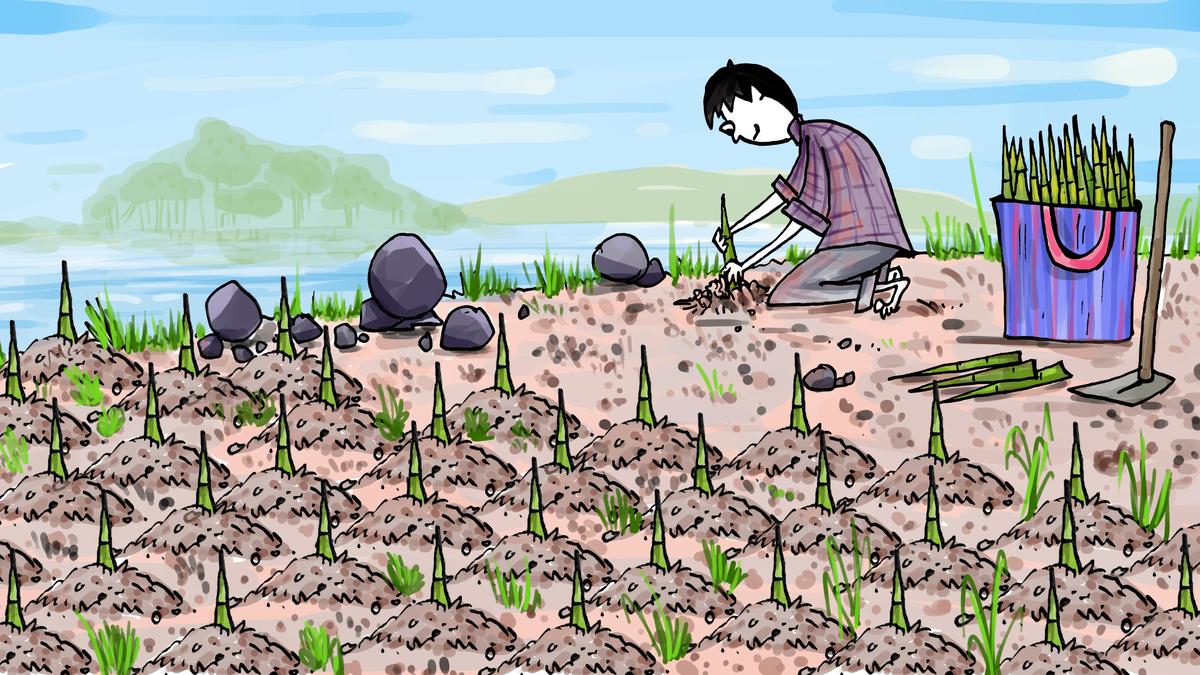
Builder of forests
The Hindu
Discover the incredible story of Jadav Molai Payeng, the Forest Man of India, who transformed barren land into a lush forest.
Jadav lived in a small village on the banks of a mighty river. In the rainy season, the river rose and, more often than not, broke its banks and flooded the plains. The people loved and hated the river. They loved it for it gave them sustenance. They hated it because it destroyed them. Yet, it was this very river that gave them life.
When Jadav was 16 years old, as was usual in the monsoon season, it began to rain. But this time, the rain was different. It was heavy and fierce. It battered the trees, the houses and everything that it came across. The river rose and flooded the plains. The people prayed for respite.
Finally, when it did stop, Jadav went out to see the damage the rain had wrecked. He was heartbroken when he saw that the flood waters had swept away all the trees and plants on the plain. With the rain spent, the sun came out. It was a hot and searing sun that came up after the rains, and it beat mercilessly down on the barren land. It was so hot that the animals and birds fled in search of shade and tree cover. Even the snakes suffered, and many died.
Jadav was reminded of the words an agriculturist scientist he had met had told him, “Plant trees and they will take care of us.”
He decided that it was wise advice and it would do them all good to follow it. So, he went back to the village and said to the elders, “We have to do something. We have to save our land or, one day, we too will die like these snakes if there is no green cover.”
The elders listened to everything he had to say. They did not have answers or solutions to the problem. Instead, they laughed at him and said, “If it gets too difficult for us to stay here, we will build new homes for ourselves in a different place.”
Jadav was sad and disheartened with this reply. But it did not deter him from trying to find other ways to protect the environment. He went to talk the authorities. “Surely, they will help me,” he thought. He presented his case and requested them to plant trees. Much to his dismay, they too laughed at him. They said, “Don’t tell us what to do. If you are so keen about it then go and plant the trees yourself.”

 Run 3 Space | Play Space Running Game
Run 3 Space | Play Space Running Game Traffic Jam 3D | Online Racing Game
Traffic Jam 3D | Online Racing Game Duck Hunt | Play Old Classic Game
Duck Hunt | Play Old Classic Game











